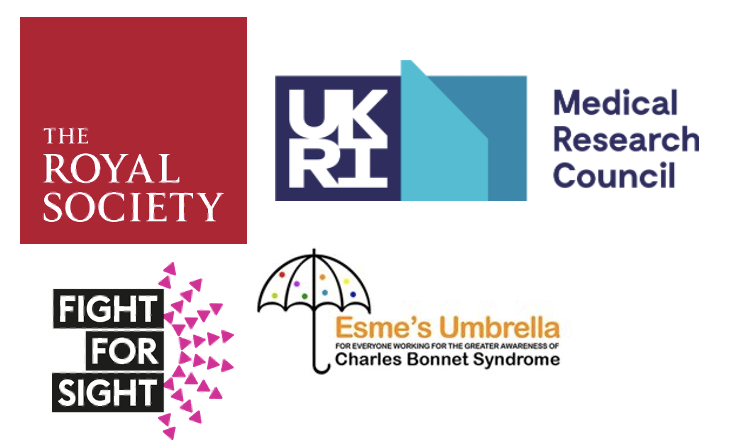
Colleges
Contact information
+44 (0)1865 610 476
Directions to my office at the WIN-Annexe, Wolfson Building
 https://orcid.org/0000-0003-3544-0711
https://orcid.org/0000-0003-3544-0711
WIN-Annexe, Wolfson Building, Headley Way, Headington, Oxford OX3 9DU, UK.
she/her
Team members
-
Julien Fars
Postdoctoral Research Fellow
-
Rebecca Willis
DPhil Student
-
Megan Groombridge
Research Assistant
Collaborators
Oxford
Dr Beata Godlewska , Dept. Psychiatry
International
Dennis Levi, University of California, Berkeley, USA
Jun-Yun Zhang, Peking University, Peking, China
Generously funded by

Betina Ip
DPhil
Royal Society Dorothy Hodgkin Research Fellow
- Principal Investigator
- Hugh Price Fellow, Jesus College
I am broadly interested in the influence of the environment on brain function. This interaction has been studied in neuroscience through investigating how sensory experience affects visual development. What supports experience dependent learning in early childhood? Can we facilitate learning in adults by understanding neuroplasticity?
My lab attempts to answer to such questions using advanced multimodal brain imaging, especially MR Spectroscopy, behavioural measures and digital technology, including virtual reality.
Our experimental model is the human binocular visual system. If binocular visual experience is abnormal in childhood, a condition called amblyopia can occur that permanently reduces vision in one eye. We want to understand if controlled visual experiences can rescue amblyopic vision in adulthood, and if these changes in behaviour can be related to the brain. Such brain to behaviour relationships could pinpoint factors underlying adult neuroplasticity, and generate new avenues for treating vision disorders that are currently untreatable.
Ultimately, our research can contribute to a better understanding of how experience makes us who we are, and identify ways to harness cutting edge neuroscience and digital technology to improve health.
About me
I read for my DPhil on attentional modulation of binocular vision at St John’s College, Oxford. I then worked on fine-scale representations of binocular disparity in the human brain at the Department of Physiology, Anatomy and Genetics as a postdoc. In 2020, I was awarded a Royal Society Dorothy Hodgkin Research Fellowship and moved to the Nuffield Department of Clinical Neurosciences. I joined Jesus College in 2022 as a Hugh Price Fellow in Neuroscience.
Positive Research Culture & Public Engagement
Research culture is important to me. I am a mentor for the BIPOC STEM network, supporting ethnically diverse students at the University; I facilitate women’s career advancement as part of the Women in Clinical Neurosciences committee, and I have co-led the WIN Centre's Early Career Researcher's group (2020-2022) to enhance researchers' careers. I have also authored a children's picture book on neuroscience featuring my daughter and myself (as an owl).
Students
Joshua Briddon, FHS student 2025
Lucy Starling, Doctoral training project student 2024
Rebecca Willis, WIN-NDCN (DPhil student) 2023
Sylvana Vilca-Melendez, Dept. Psychiatry (DPhil student, co-supervisor) 2022
Lab alumni
Po-Chun Tseng, MSc Clinical and Therapeutic Neuroscience 2024
Dr Jacek Matuszewski, Visiting researcher 2022
Kathleen Tracey, FHS student 2021/22, Wadham College
Amblyopia VR study

Websites
-
Amblyopia VR Study
Our ongoing study in amblyopic adults studies neural changes after visual training using VR technology.
-
Koala Study
Our ongoing study in amblyopic children studies neural substrates of occlusion therapy.
Research opportunities
Unversity of Oxford project students
I often have small projects for students, so if you are a student at the University of Oxford interested in gaining research experience, please come and talk to me at any point. For example, Oxford MSc/DPhil can do a graduate rotation project. Bio/medical sciences undergraduate students can do an FHS project. Projects can involve a variety of brain and behavioural techniques.
Prospective national and international DPhil students
Please send me your CV, information about your research interests and motivation. Further information on the DPhil in Clinical Neurosciences can be found here.
Postdoctoral and research assistant positions will be advertised here and on the University's job website.
Key publications
-
The relationship between visual acuity loss and GABAergic inhibition in amblyopia
Journal article
Ip IB. et al, (2024), Imaging Neuroscience, 2, 1 - 18
Recent publications
-
The relationship between visual acuity loss and GABAergic inhibition in amblyopia
Journal article
Ip IB. et al, (2024), Imaging Neuroscience, 2, 1 - 18
-
Chronic neuropathic pain components in whiplash-associated disorders correlate with metabolite concentrations in the anterior cingulate and dorsolateral prefrontal cortex: a consensus-driven MRS re-examination.
Journal article
Pinilla-Fernández I. et al, (2024), Front Med (Lausanne), 11
-
Correlated and Anticorrelated Binocular Disparity Modulate GABA+ and Glutamate/glutamine Concentrations in the Human Visual Cortex
Preprint
Matuszewski J. et al, (2024)
-
Neurochemistry and functional connectivity in the brain of people with Charles Bonnet syndrome.
Journal article
Bridge H. et al, (2024), Ther Adv Ophthalmol, 16
-
The missing pieces: an investigation into the parallels between Charles Bonnet, phantom limb and tinnitus syndromes.
Journal article
Baffour-Awuah KA. et al, (2024), Ther Adv Ophthalmol, 16




